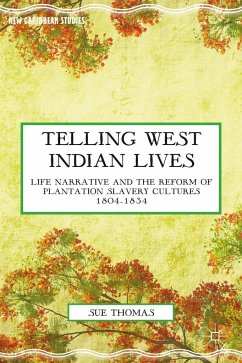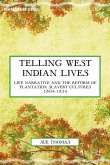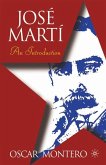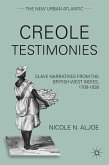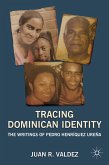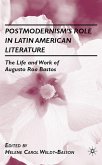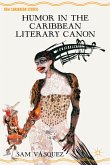Telling West Indian Lives: Life Narrative and the Reform of Plantation Slavery Cultures 1804-1834 draws historical and literary attention to life story and narration in the late plantation slavery period. Drawing on new archival research, it highlights the ways written narrative shaped evangelical, philanthropic, and antislavery reform projects.
"Telling West Indian Lives shines a bright light on the creolized literary cultures - oral and scribal - that generated surprisingly varied forms of spiritual life-writing in the final decades of West Indian slavery." - B.W. Higman, Professor of History, Australian National University and University of the West Indies, Jamaica
"Sue Thomas changes the landscape of Caribbean studies by taking seriously the West Indian sites of Evangelical lay philanthropy which challenged the institution of slavery. Based on extensive archival research and astute textual reading, Telling West Indian Lives helps us understand as never before the background to the life-writing of the abolition period. It is an extraordinarily impressive achievement." - Peter Hulme, Professor of Literature, Film, and Theatre Studies, University of Essex, UK
"This excellent book is informative, and rigorously researched. Telling West Indian Lives addresses an important gap in plantation historiography, namely, scholarly attention to the role of nineteenth century life narratives of enslaved peoples, and their meanings particularly in terms of Christian influences impacting upon the reform of plantation slavery cultures. Sue Thomas makes a serious contribution to scholarship that is cross-disciplinary including nineteenth century studies, transatlantic studies, literary studies, Caribbean studies, and History." - Joan Anim-Addo, Professor of Caribbean Literature and Culture, Goldsmiths, University of London, UK
"Sue Thomas changes the landscape of Caribbean studies by taking seriously the West Indian sites of Evangelical lay philanthropy which challenged the institution of slavery. Based on extensive archival research and astute textual reading, Telling West Indian Lives helps us understand as never before the background to the life-writing of the abolition period. It is an extraordinarily impressive achievement." - Peter Hulme, Professor of Literature, Film, and Theatre Studies, University of Essex, UK
"This excellent book is informative, and rigorously researched. Telling West Indian Lives addresses an important gap in plantation historiography, namely, scholarly attention to the role of nineteenth century life narratives of enslaved peoples, and their meanings particularly in terms of Christian influences impacting upon the reform of plantation slavery cultures. Sue Thomas makes a serious contribution to scholarship that is cross-disciplinary including nineteenth century studies, transatlantic studies, literary studies, Caribbean studies, and History." - Joan Anim-Addo, Professor of Caribbean Literature and Culture, Goldsmiths, University of London, UK

